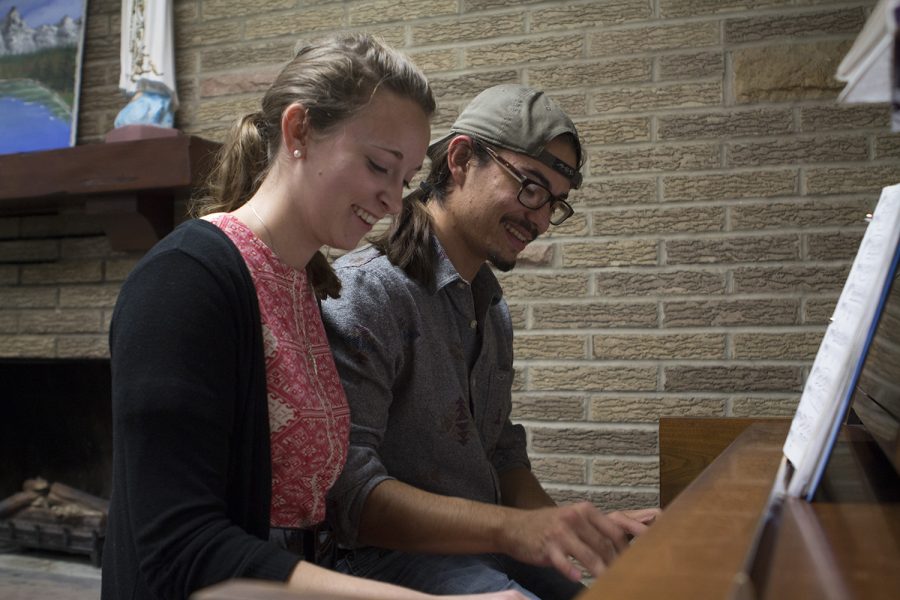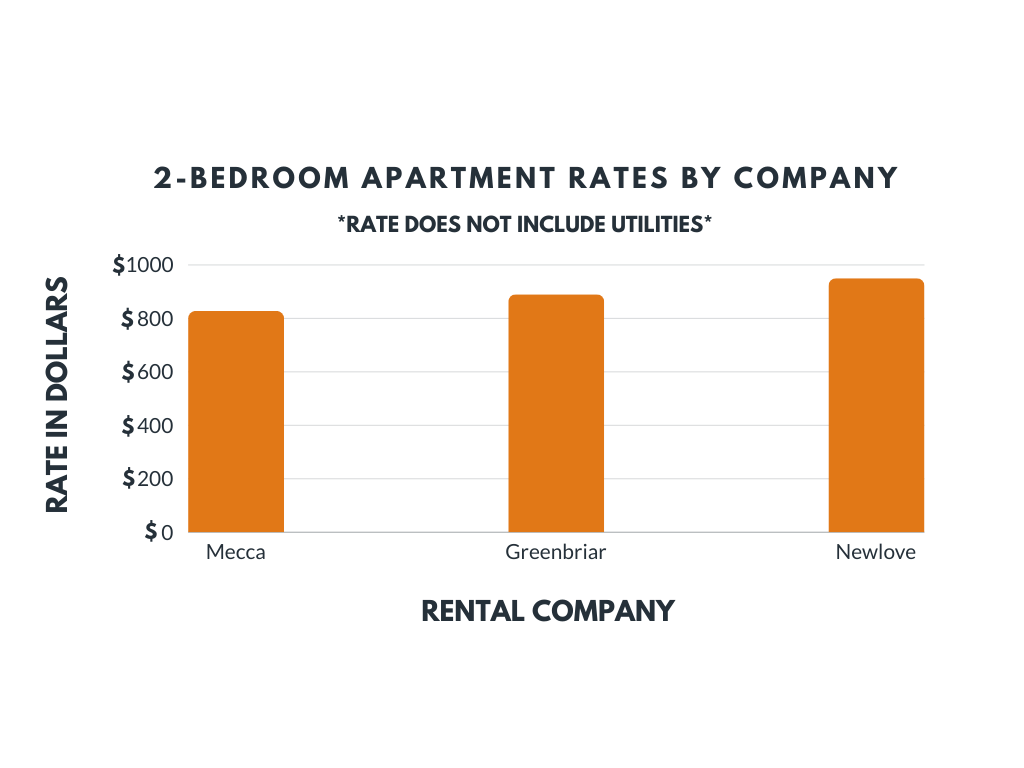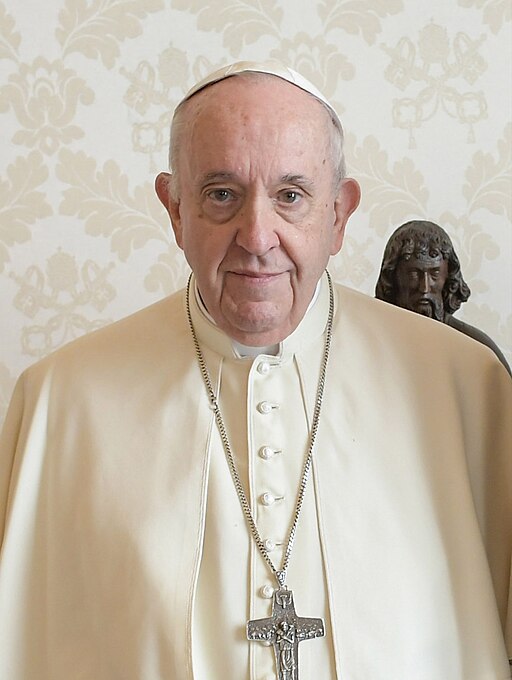Joey Bauer spent a long four days driving across the country, contemplating his relationship. He dreaded returning from a retreat in California to tell his girlfriend he wanted to end the relationship so he could discern the priesthood.
That was the plan until he came face-to-face with his then girlfriend, now fiancé, Sophia Moretto.
“I was like, ‘She’s beautiful, and I don’t want to do that. This is the girl, if I want to get married,’” Bauer said.
Bauer and Moretto, who Bauer lovingly calls “Soap,” will be married June 16, 2018. Like many couples, the 22-year-olds envision their marriage very traditionally with a strong focus on their religious beliefs.
At one time, this was the norm, but as millennials become less religious, Bauer and Moretto fall into the minority.
According to a 2014 Pew Research Center study of more than 35,000 U.S. adults, the number of millennials with strong religious beliefs is far smaller than the number of people maturing in the 1950s, which Susan Brown of the National Center for Family and Marriage Research calls the “Golden Age of the American Family.”
The study shows that 71 percent of those surveyed from the silent generation (born 1928-1945) believed in God “with absolute certainty.” Millennials, which the study breaks up into older (born 1981-1989) and younger (born 1990-1996), believe in God “with absolute certainty” at much lower rates — 54 and 50 percent, respectively. About 67 percent of those identifying with the silent generation said that religion was very important to them, compared to 44 and 38 percent for older and younger millennials, respectively.
Brown said the traditional marriages of those from the silent generation during the “Golden Age” in the ‘50s were “more companionate because it was about the goal. The measure of success was that you performed your role well.”
That role could include being a good wife and a good mother. Bauer and Moretto have this image of marriage, hoping to help each other grow to be the best individual, partner, parent and child of God each can be in their lifetime together.
“I’ve found the person that I want to make stronger, and just bring out the best in,” Moretto said.
On the other hand, Brown refers to contemporary marriage in the United States as “individualized marriage,” in which partners focus on individual happiness.
“Our understanding or expectations for marriage today are more self-focused,” she said. “So it’s about: ‘What is this relationship doing for me? In what way is it fulfilling me personally? Am I driving satisfaction from it?’”
She said the large shift in the meaning of marriage reflects broader changes in society, and the Rev. Jason Kahle, the priest at St. Thomas More parish in Bowling Green, said the specific change is the decline of Christianity and Christian values throughout the United States.
At its base, Kahle said marriage is rooted in the biblical story of Adam and Eve. “God created male and female and the two became one.” He mentioned the concept also appears in Genesis and is reiterated by Jesus in the Gospels, where men leave their parents to be joined as one with their wives.
“Marriage has gone from the traditional man and woman being married for life and having kids, to now being seen as anything and everything,” Kahle said. “Marriage has drastically changed just in the short time … I have been alive, and I think as a result people are seeing it as something almost recreational, definitely not a lifelong commitment.”
He cited a specific example of Laura Mesi, who married herself last month in a ceremony with no legal weight in Italy. Self-marriage is called sologamy, and Mesi said she held the ceremony to represent that her happiness did not depend on a man, and people need to love themselves first.
That self-fulfillment seen in Mesi’s “marriage” and many contemporary marriages, is far from the concept of self-sacrifice emphasized by Bauer and Moretto.
“Marriage — it’s kind of this idea where you put the other’s needs above your own,” Bauer said. “That’s what any healthy, romantic relationship is at its core.”
Moretto also said happiness and satisfaction are not a sufficient gauge on success in a marriage.
“You can’t really say that marriage is about making someone happy or being happy yourself because that’s never going to happen,” Moretto said. “You’re never going to always be happy with someone … it’s about making them a better person. And making them a better person is not always going to make them happy.”
Bauer agreed, adding that happiness is a very fleeting concept.
“I think that’s a big problem,” he said. “People want to get married because they think this other person will make them happy all the time, and when all those fuzzy feelings wear off, they wake up and realize that ‘Wow, this is really tough. And it’s not making me happy, so I’m going to quit.’”
Bauer and Moretto are being counseled by Kahle as they prepare for marriage. Kahle said the people he counsels are more committed to their marriages, because they pray together, go to mass together and grow together. They go into marriage with the idea that divorce isn’t an option.
He’s seen some couples throughout his time as a priest that haven’t been as fortunate in their marriages and start thinking about divorce after just the first year because “they weren’t taking it seriously. It was just a production, just one day. What they were concerned about was just the wedding, not the marriage.”
“They forget what marriage is about — about working together, sacrificing, laying down their life for someone else, helping someone become the best version of themself, helping someone get to heaven,” Kahle said. “That’s what marriage is about, and I think we’ve lost that with this very individualistic culture that we have.”
A 2013 Pew study shows that only 30 percent of adults cite a relationship recognized through a religious ceremony as a reason to get married. Higher on the list are love (88 percent), making a lifelong commitment (81 percent), companionship (76 percent) and having children (49 percent).
While 81 percent of people say a lifelong commitment is a reason to get married, Kahle sees this commitment coming later, if it comes at all. About 50 percent of Americans are married now, down from 78 percent in 1960.
“It’s very rare these days to have a couple in their mid-20s commit to marriage. Those who do so, in my experience, are usually very faithful, have a strong faith background, strong faith upbringing. They know what marriage is about. They know what they’re getting themselves into,” Kahle said.
He said people are increasingly putting off marriage until later in life because they want to cross things off the bucket list before they get “tied down,” and the sense of “surrender, selflessness, sacrifice is almost a bad thing these days.”
Kahle says this is just one contributor to the elevated divorce rates, which have reached 50 percent. He said the main reason for divorce is no longer infidelity; now, it’s all about the money.
“We’ve made money and finances a god, a demigod, an idol, instead of a sense of stewardship and recognizing all that we’ve been given belongs to God — our time, talent, our treasure — in this case our treasure, and how we can share and give to those less fortunate,” Kahle said.
Brown says the divorce rate could be related to an individualized approach, but the main idea to consider is not that marriages are less successful, but more so that divorce is a more acceptable option. For example, women are much more active in the labor force, making it possible financially to separate.
Brown also credits the viability of other options as a reason the term marriage has evolved so much. The acceptability of these alternatives has made marriage less universal, and not something necessarily expected for everyone as it once was.
“Many individuals will tell us that they are cohabitating to test their relationship for whether it’s marriage ready,” Brown said. “The real way to avoid divorce is to not get married.”
Cohabitation has been on the rise. According to the Pew Center, in 2016, there were 18 million cohabitating relationships, up 29 percent from 2007. The same concept also applies to those who are already divorced and don’t want to get remarried after living a failed relationship. The number of people 50 years and older cohabitating is up 75 percent from 2007 and 55 percent of them are divorcees.
Amy Smith, 22, has been cohabiting with her boyfriend for four years and has no plans to marry him. She said the idea of marriage as a religious concept makes sense — two people joining as one in God’s family. But since she’s not religious, she said marriage is just about the tax breaks.
“If you’re not religious, it doesn’t make sense to me to get married because I’m already living with him,” Smith said. We’re already doing what a married couple would do, except I’m not getting the payment for it.”
She said it would be the same relationship. “We’d still be as committed to each other as we are.”
To her, the idea of one man giving away his daughter to another man also represents the possession of women.
Kahle said that while it’s hard to pinpoint when changes began, he believes his generation saw the change from marriage as a lifelong commitment to one that was far more recreational. While religion is a key factor in the change, he said the sexual revolution of the 1960s, a social movement that challenged the norms of sexuality and interpersonal relationships, played a part.
“We’ve forgotten the intimacy of [sex], what it means,” Kahle said. “Making love is the most intimate thing we have as human beings. It truly unites two people together more so than anything else we have on this planet.”
The sexual revolution of the 60s made the concept of sexual intimacy more recreational. The concept of “free love,” sexual intimacy without commitment, became popular and put modern culture on the path to where it is today, radically changing social norms.
The norm of monogamous relationships was questioned throughout the revolution and has grown into the polyamorous (having many loves) identity of today. Anya Light identified as polyamorous for about five years, and while she doesn’t identify that way any longer, she continues challenging people to think about the concept of loving several partners at one time.
“Since we’re doing the whole legal marriage thing in this society, I think you’ve got to add in poly people. You’ve got to,” the spiritual life coach and energy healer said. “Yes, it makes it way more complicated and requires restructuring of laws, but dude, we can do that.”
There are some specific qualities, like courage and honesty, that polyamorous relationships excel at, making them perfect candidates for marriage, Light said.
“Most of the time, they have cultivated a certain amount of courage within themselves to be honest at all times about what they’re feeling and going through. So, this honest and open communication facilitates awesomeness in every other part of their relationship.”
She hopes monogamous people will take some of this wisdom from poly relationships, including the specific feeling of “compersion,” which Light defines as basically the opposite of jealousy. It implies truly feeling joy because someone you love is feeling joy. She said this contributes to the overall idea that people don’t own their partners.
Another piece of wisdom that makes polyamorous relationships excel is the norm of focusing on personal growth, including self-awareness, personal transformation, personal healing and intentionally moving out of comfort zones.
She said she’s not sure what poly marriages would specifically look like because “a lot of poly people are not of the marrying kind. So while it would be good to get legal recognition for it, I don’t know how many people are going to take them up on it.”
For Kahle, these changing norms in marriage present a downfall for more than just commitment in relationships; it will affect politics, the elderly and children.
“Marriage — families — are known as a domestic church. If our families start breaking down in our country, that’s going to affect how our politics are operated,” Kahle said. “If marriages are breaking down, people are going to have less concern for the elderly, less concern for children, and certainly less concern for family life.”

























